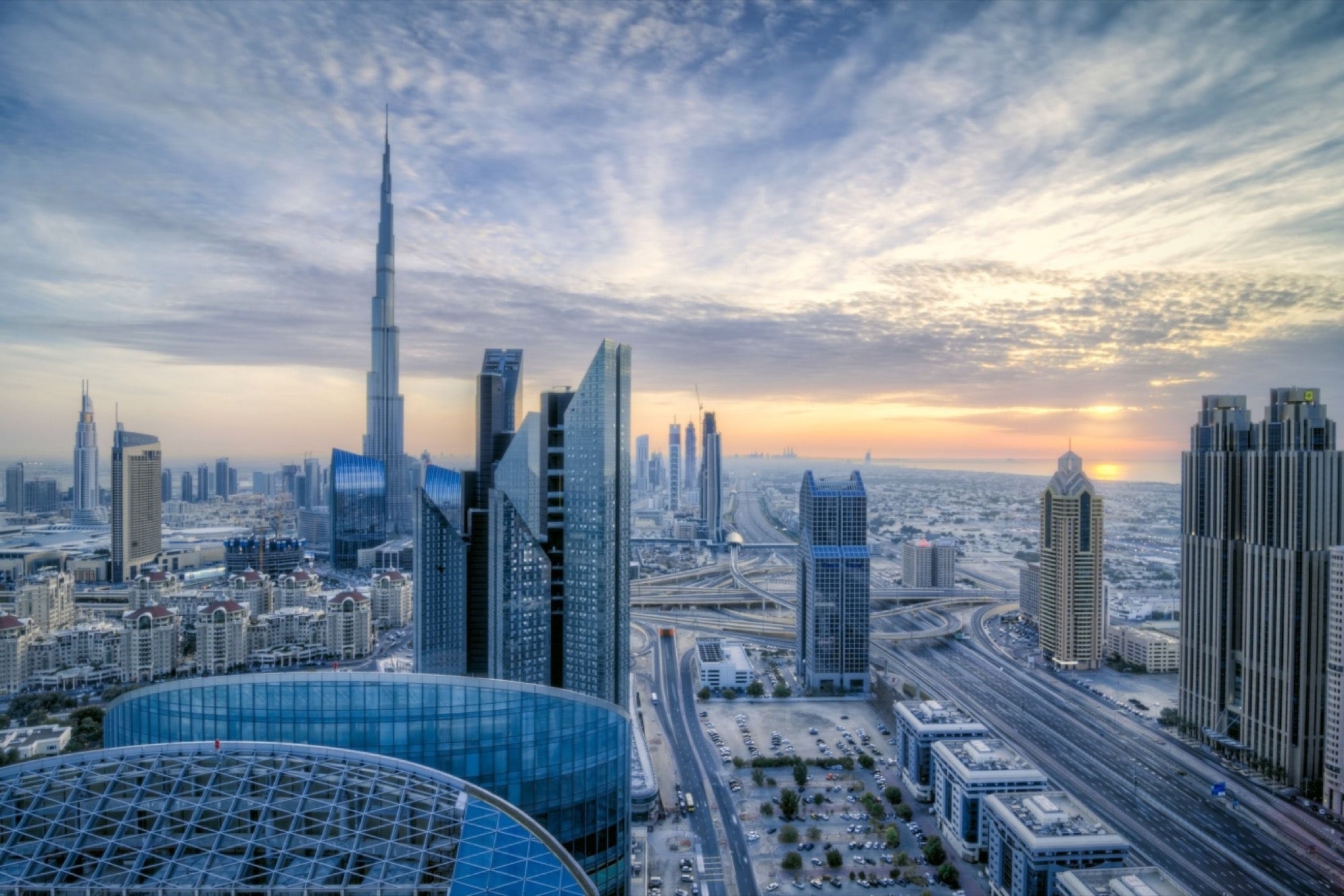US-China Trade War Can Open New Doors For SMEs In The UAE One man's challenge, another man's opportunity.
By Megha Merani •
Opinions expressed by Entrepreneur contributors are their own.
You're reading Entrepreneur Middle East, an international franchise of Entrepreneur Media.

One man's challenge, another man's opportunity. Or so they say. In which case, trade wars, while volatile and disrupting, breed opportunities for those who can tap into them instead of getting caught up in the crossfire.
We are, of course, talking about the ongoing trade dispute between two of the world's largest economies. In what is becoming a common occurrence, the Trump administration in the United States (US) agitated markets when it announced it would impose tariffs on billions of dollars worth of goods from China, igniting an immediate retaliation from Beijing. With each imposing 25% levies on billions of dollars of each other's goods, the rift has stirred up fears of a long drawn out battle between the US and China, creating ripples across the globe.
But it's not all bad news. Tesla Inc. and BMW AG, for example, are turning lemons to lemonade by simply bypassing levies. The biggest potential losers from Beijing's duties on car imports from the US, as much of their production is centered in America, the automakers are instead doubling down in China. Tesla announced its first factory outside the US in Shanghai. And German luxury car maker BMW announced its joint venture with China's Brilliance, set to become the first foreign manufacturer to own majority control of a Chinese automobile venture.
Closer to home, an Economic Bulletin on the US-China trade war by the Dubai Chamber of Commerce says that the UAE and some other GCC countries are "very well positioned" to gain a larger market share in the Chinese market for select products on the list such as petrochemicals and polymers, such as polyethylene, polycarbonate and acrylonitrile, along with liquefied propane. The tariffs could also have a positive impact on UAE producers due to higher demand from China. Meanwhile, with the UAE's role as a major transshipment point, the trade war also presents an opportunity for SMEs in the Emirates and wider Middle East region who function as the main importers and re-exporters of Chinese goods.
Opportunities for SMEs
"Chinese factories will try to maintain output no matter what, and they are running at pretty much full capacity," says Dr. Sanjay Modak, Chair, Graduate Programs and Research Department, Rochester Institute of Technology in Dubai. "In fact, Chinese trade figures for July show both exports and imports up from the previous month. But as the US imposes tariffs on more Chinese goods, China is going to have to look at other markets for its exports."
Modak, who has previously worked in private equity in Hong Kong, has consulted widely on telecommunications and IT with clients from Japan to Paraguay, and managed a unique, just-in-time supply chain for mobile handsets in China. He draws attention to the fact that the UAE is not only already an importer of Chinese goods but also a major transshipment point to the rest of the world, especially the rest of the Middle East, as well as Africa, much like Hong Kong was 30 to 40 years ago. "So, I predict we'll see an increase in Chinese exports to the UAE, and particularly through Dubai, and these will be mostly for transshipment to other parts of the the world," he says. The professor points out that the main importers and re-exporters of Chinese goods in the UAE are mainly SMEs, especially for Chinese agricultural goods, household products, plastics and light commercial goods. "Therefore, if trade increases, and transshipment increases, it's likely to have a positive impact on SMEs and benefit their businesses," he says.
The UAE is China's first non-oil trade partner. In 2017, UAE state news agency WAM reported that China became the UAE's largest trade partner and China-UAE trade stood at around $54 billion in 2017. Chinese visitors to the UAE crossed one million in the same year and 3.5 million Chinese tourists also transited through the Emirates. Alongside his visit in July, Chinese President Xi Jinping said in an op-ed published in a UAE newspaper that he hopes the UAE and China will be "innovative partners who champion result-oriented actions", opening the door for future ventures. He wrote: "Both our nations are known for a trailblazing spirit and pursuit of excellence. China is implementing its innovation-driven development strategy, and the UAE is acting on its national innovation strategy, Energy Strategy 2050, and a six-pillar plan for the fourth industrial revolution. Our two countries may work in concert to seek new breakthroughs in new and high-tech cooperation."
"The next big powerhouse'
Modak believes China's tech giants will likely have an eye on the UAE's startup scene. "Some of the big Chinese tech companies were once startups," he explains. "These companies are now powerhouses flush with cash, and are looking for investment opportunities around the world. I don't see why they wouldn't look for opportunities in the UAE – to find and invest in the next big powerhouse."
E-commerce giant has already invested nearly $1.7 billion in Indian startups, including BigBasket, Zomato, Paytm, XpressBees and several others. "In terms of sectors, e-commerce is likely the best bet," Modak says. "It doesn't take a lot to start an e-commerce company, and the UAE already has excellent warehousing and storage facilities. So, I expect this to be the first, most obvious sector to see traction."
The other sector likely to see Chinese interest is natural resources, he adds. "China has an insatiable thirst for natural resources and while many may disagree, that was perhaps one of the main reasons for President Xi's visit – to cement ties with the UAE to ensure a regular supply of natural resources for China."
It's no surprise that the UAE received the first Silk Road Fund investment in the Middle East for its $3.4 billion Hassyan Clean Coal Power Plant while another Silk Road Fund deal was inked during Xi's trip, for "the world's largest solar energy plant" in Dubai.
Financing potential
Chinese institutions also have a longstanding relationship with the Dubai International Financial Centre and continue to use the hub as their gateway to growth. The DIFC is home to the regional headquarters of China's four largest banks in terms of total assets. This in turn builds on the importance of the UAE in the One Belt, One Road initiative, as well as supports the growing interest from Chinese institutions in DIFC and its sophisticated fintech ecosystem.
Modak sees huge opportunity for Chinese banks to swoop into the SME sector. He says: "SMEs in the UAE find it challenging to raise finance, especially in the case of startups. For example, only 4% of total bank lending goes to the SME sector- I am referring to UAE banks. But there is nothing stopping Chinese banks who have a base established here to start lending to SMEs in the re-export business, especially when the source of those re-exports is China."
According to the Khalifa Fund for Enterprise Development, a fund launched by Abu Dhabi's government to facilitate entrepreneurship development and SME growth, loans to SMEs account for 4% of outstanding bank credit in the UAE, below the regional average of 9.3%. "But whether the Chinese banks will lend to third party UAE operators, or just to Chinese companies here in the UAE remains to be seen, although I'd guess it would be the latter," he notes.
However, if such finance were to become available to SMEs in the UAE and wider region, Modak insists that SMEs have to do more to attract capital, especially in terms of keeping books and increasing transparency, in order to be attractive to investors. "For SMEs in the UAE, it's true that they probably don't have as large an ecosystem of VCs and angel investors like in other more established places, but at the same time, it's not only the financiers that are to blame." he says. "If you want to attract investors, you have to improve transparency. But for various reasons, SMEs are loath to open their books and don't have proper accounting methods in place or audited financial statements. If your operations are not transparent, you cannot expect investors to rush in to invest in some opaque entity. So this area really needs to improve. It's got to be a bit of give and take."
Click here to read the Dubai Chamber's Economic Bulletin on the potential implications of US trade war with China on UAE.
This article was originally published on Dubai Startup Hub and has been reposted on Entrepreneur Middle East based on a mutual agreement between the websites.
Related: Capital Welcome: CIDIC President and CEO Oswald Wong Eyes Investments In The Middle East













